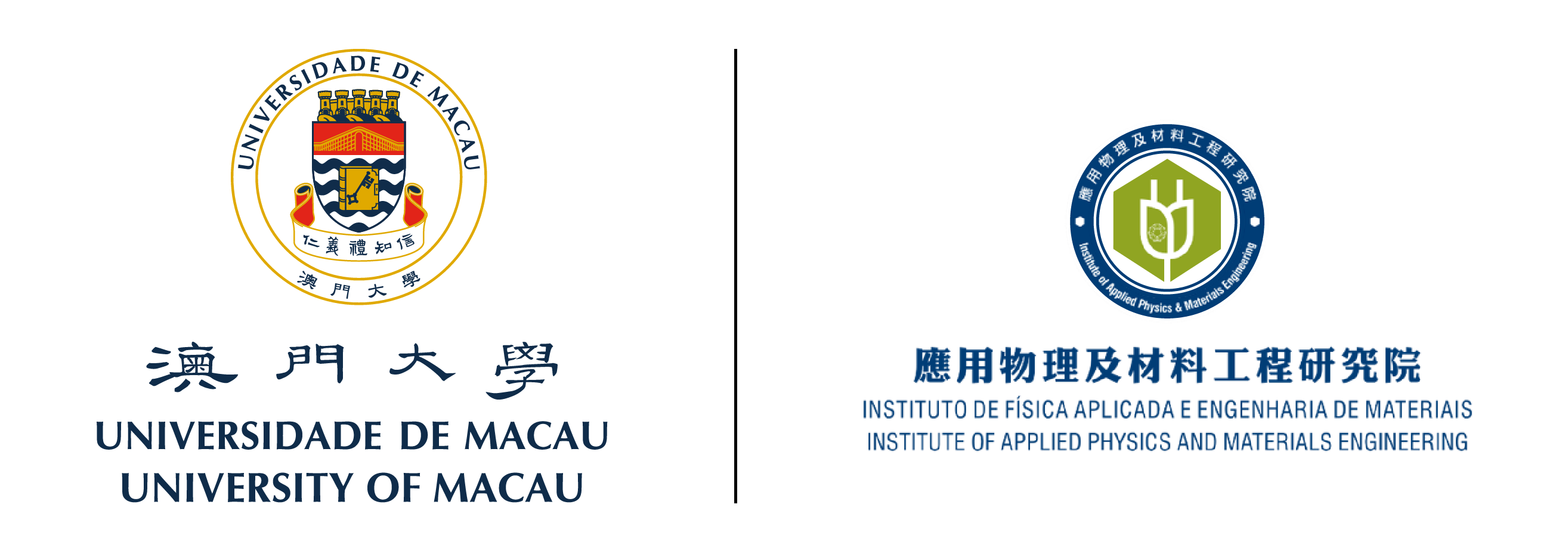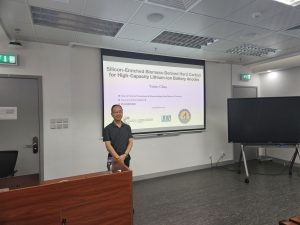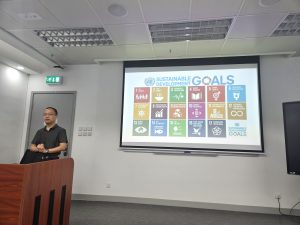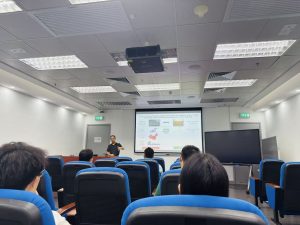On September 26, 2025, our institute welcomed Prof. Yimin Chao (巢毅敏) from Foshan Xianhu Laboratory for a seminar titled “Silicon-Enriched Biomass-Derived Hard Carbon for High-Capacity Lithium-ion Battery Anodes.” Prof. Chao, a leading researcher in materials science and nanosynthesis of silicon quantum dots (Si-QDs), is a Fellow of the Royal Society of Chemistry (RSC). The seminar was hosted by Prof. Kwun Nam Hui, and which attracted more than 20 institute members and students.
Prof. Chao began by addressing the environmental challenges associated with graphite production in Europe and emphasized the urgent need for sustainable alternatives. He presented his group’s work on scalable silicon-rich hard carbon derived from biowaste—specifically barley husks—and discussed optimization strategies for synthesis conditions. By systematically incorporating Si-QDs of various sizes (10–150 nm) into the carbon matrix, the resulting composite anodes achieved remarkable electrochemical performance, delivering a specific capacity of 1382 mAh g⁻¹ at C/5, far surpassing commercial graphite.
In the second part of his talk, Prof. Chao outlined the limitations of biomass-derived hard carbon when used alone and described its integration with nano-silicon particles as a hybrid anode material. A full cell, paired with NMC622 as the cathode, delivered an energy density of 385 Wh kg⁻¹ at C/10 while maintaining 89% capacity retention after 100 cycles, outperforming conventional graphite-based cells. Importantly, the fabrication process followed a straightforward, scalable route—based on simple carbonization and mechanical mixing—without the need for complex synthesis steps, highlighting its potential for large-scale production. Comparative electrochemical studies confirmed superior specific capacity and rate capability relative to graphite, positioning these materials as promising, sustainable candidates for next-generation LIB anodes.
The seminar concluded with a lively Q&A session, during which attendees engaged with Prof. Chao on topics ranging from materials design to scalable manufacturing and potential collaboration opportunities. His visit strengthened ties between the two institutions and reinforced shared goals in developing sustainable, biomass-derived energy materials for practical energy storage applications.




